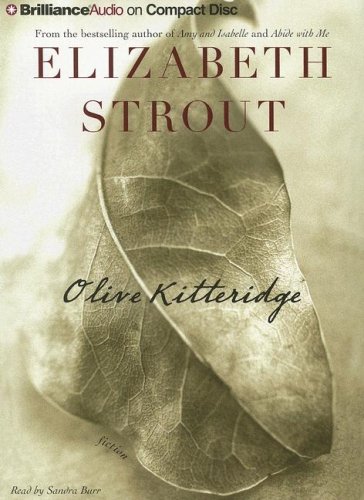

Her husband Henry said to her once, not so much in reproach as in weariness, “I don’t believe you’ve ever once apologised. She said what she thought, without pausing to wonder how hurtful, or how wrong, she might be. When we first met her, in late middle age, Olive had no brakes, no filter. In Olive Kitteridge she created a character so vital, so funny, so exasperating and yet so winning that Olive lights up a story even when she is only glimpsed in the distance, a hand waved over her head in her signature gesture. But Strout can go emotionally large as well. My Name Is Lucy Barton, from 2016, much admired by some, was too arid for my taste, its self-pitying heroine too unpleasant. They are all admirably accomplished, written with sharp-witted exactitude, if sometimes almost too spare. Strout has been revisiting these themes in her meticulous realist fiction through half a dozen books now. Banal loss (children growing up and moving away) becomes tragic, and the pleasure of a haphazardly begun new friendship between two incontinent old women seems as redemptive as romantic love. More important, though, than Crosby having its share of the stuff of which flashier drama is made, is Strout’s careful attention to the humdrum, quotidian experience that gradually accretes grandeur simply by dint of going on and on through decades. Even though everyone knows everyone else’s business, murder, paedophilia, suicide, armed robbery, arson and hostage-taking all take place in Crosby, and so do heartbreak and true love. It’s not only that this small town is the setting for high drama. Within these taut, laconic little tales, there is room for characters to show feeling from several levels of their being It’s just a place, as Betty’s life (two disastrous marriages, brain-damaged son, dire poverty) is “just a life”, but Strout persuades us that Crosby matters, and so do its people. The town of Crosby, Maine, in which Elizabeth Strout set her acclaimed story-sequence-cum-novel Olive Kitteridge and now sets this sequel, Olive, Again, lies on a beautiful stretch of coast it is remote, provincial, very far from centres of power or fashion or big business. She hands her a Kleenex and asks about her life.

But when one day Betty shows up crying over the death of the headteacher on whom she had a crush, back when Olive was teaching her maths in high school, Olive softens. She really, really dislikes her for having dropped the cigarette butt that caused Olive to bend over, get dizzy and fall and subsequently decide she’d better move into sheltered housing. She dislikes her for her Republican bumper sticker. She dislikes Betty for the hostility with which she treats the other carer, a Somali woman.

O live Kitteridge doesn’t much like Betty, the “nursing aide” assigned to her after her heart attack.


 0 kommentar(er)
0 kommentar(er)
